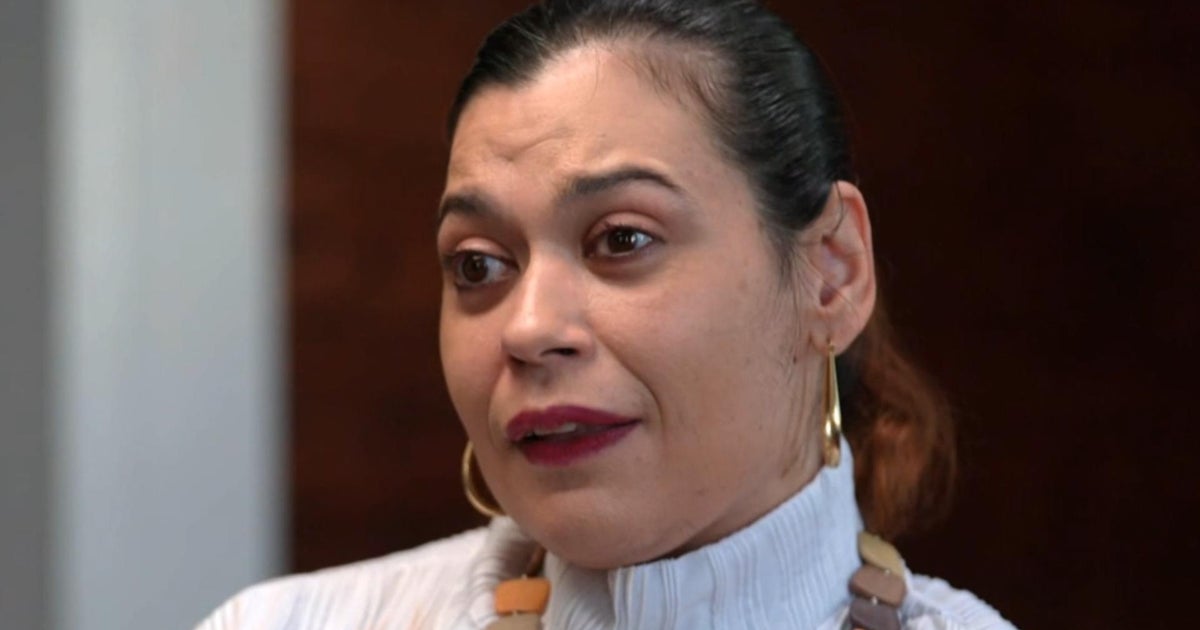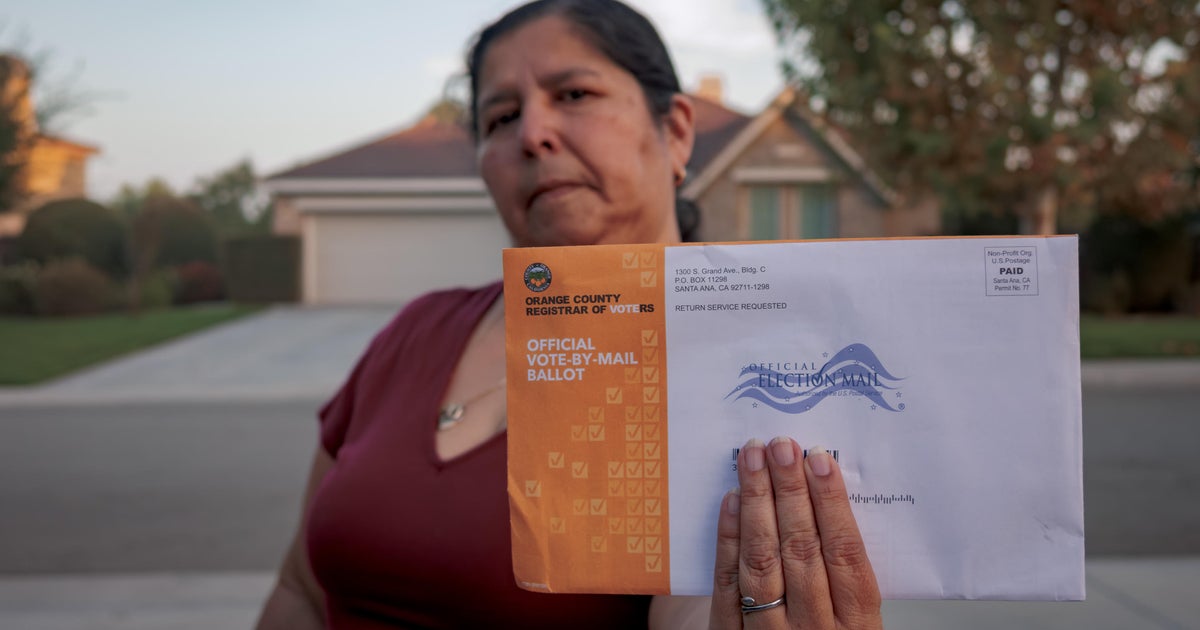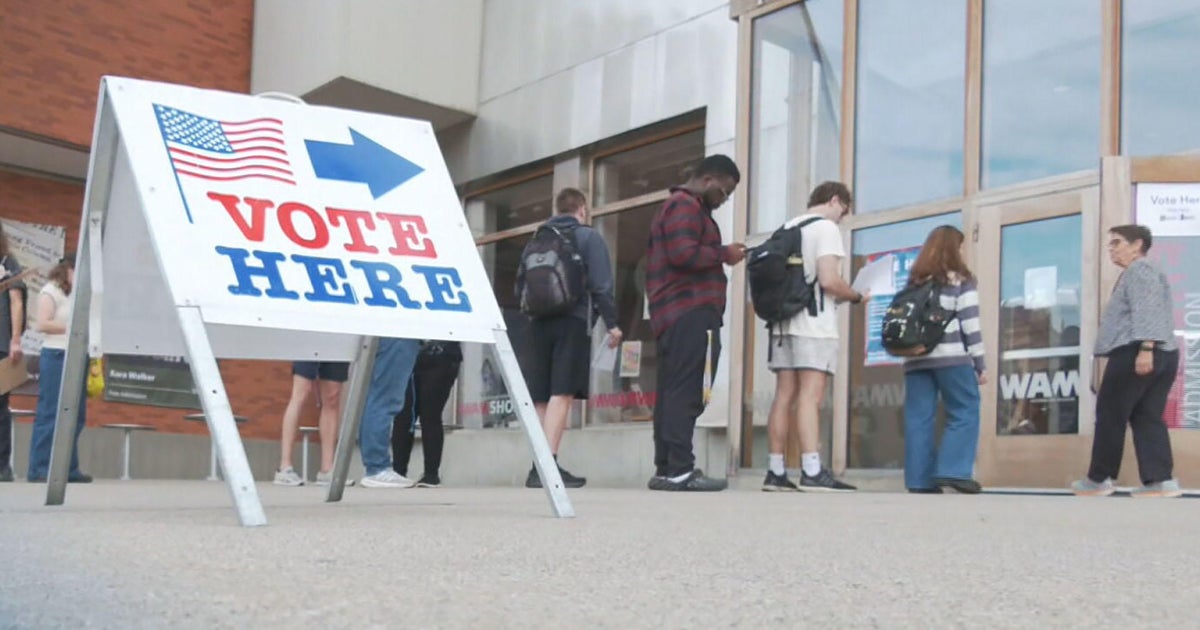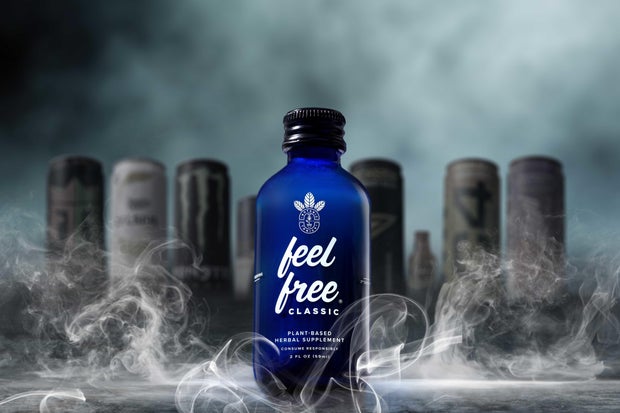CBS News
New Louisiana election laws creating challenges for voters with disabilities

New laws aimed at protecting the 2024 presidential election from fears about fraud are creating unexpected barriers for some of the nation’s more than 40.2 million voters with disabilities, disability rights advocates have told CBS News.
Laws in more than 20 states now restrict various elements of mail-in ballots including limiting the kinds of assistance a voter can ask for. Restrictions like those limit the ability of health aides and nurses to help prepare a ballot for the people they care for – and some even threaten criminal charges for aides who help too many people to vote.
“If I owned a nursing home or a group home, I [would] put out a memo to my staff saying, ‘don’t help anybody out because if you end up helping two people out by mistake, you could, could go to jail,'” said Andrew Bizer, a disability rights attorney in New Orleans. “And it also puts the folks with disabilities in a really terrible situation.”
Many of the new laws came after the 2020 elections when former President Donald Trump questioned the security of mail-in voting.
A new study released by the Rutgers Program for Disability Research found that there has been a 5.1% increase in people with disabilities eligible to vote in 2020. Among that growing population, 7.1 million eligible voters with disabilities live in seven battleground states: Arizona, Georgia, Michigan, Nevada, North Carolina, Pennsylvania and Wisconsin. This shows the potential impacts that restrictive mail-in voting laws could have in next week’s election.
One state confronting this problem is Louisiana. In late May, Republican Gov. Jeff Landry signed a series of laws aimed at increasing the state’s “election integrity.” The laws were first championed by Louisiana Secretary of State Nancy Landry who called them “a boost” to the state’s election protection efforts. She pledged those efforts would “bring us closer to being ranked first in the nation for election integrity.”
One of the laws signed by the governor makes it illegal in the state to assist more than one person with filling out, mailing or witnessing an absentee ballot – unless those being helped are immediate family members. That new restriction places caregivers and those who work at nursing, assisted living or group home facilities at risk of criminal charges if they help too many people with their ballots.
Ashley Volion, a policy analyst with Disability Rights Louisiana who has spastic cerebral palsy and has difficulty with mobility, said she relies heavily on a personal care attendant to assist her with daily tasks.
“I honestly don’t know what I would do, because they help me live my life as independently and as inclusive in the community as possible,” Volion told CBS News.
Volion said both her parents live an hour away from her and are getting older.
“They can’t help me out as much physically as they once did or could do,” she said, leaving her to solely rely on her caregivers to assist her.
Volion is one of 1.1 million voters with disabilities living in Louisiana. It is unclear how many of them rely on aides to assist them with some aspects of their ballot, whether that is to act as a witness or help return their ballot.
For those residing in a nursing home, federal and state protections ensure that they can receive assistance in the form of a visit from their registrar of voters. The task of helping more than 22,000 Louisianians who reside in a nursing home has fallen to the parish Registrars of Voters.
CBS News spoke with one woman who works at Convent Nursing Home in New Orleans. In past years, Elizabeth Ellis was one of the few people able to assist residents at the nursing home with their mail-in ballots and was prepared to do the same this year before a concerned family member called.
“She was the first person to come to me and say, ‘I know that this law is a thing,'” Ellis said. “I know that y’all are going to have to sign and you can’t sign for more than one person.”
Not aware of the new laws, Ellis said she jumped into action to try and pull together enough people to help residents. Some 20% of the residents at Covenant Nursing Home do not have family available to help them, and for even those who do have family nearby, it can be a challenge getting them there to help.
“How are we gonna do this? Because I have a hard time sometimes getting families to be involved in their loved ones’ care,” Ellis told CBS News.
She was able to get local assistance for her nursing home. Two weeks ago the Parish Registrar of Voters visited Covenant Nursing Home and assisted some of the residents with their mail-in ballots. Walking away from the experience, many residents proudly wore their ‘I Voted’ stickers.
Ellis said the visit was more than just making sure her residents cast their ballots.
“For those who are already feeling forgotten, are already feeling that they don’t count. To now not have their votes count either. It’s just an added level of hardship to them that shouldn’t happen,” Ellis said.
According to Ellis, this was the first time the registrar had visited the nursing home to assist since before Hurricane Katrina in 2005.
However, assisted living and other long-term care facilities are not eligible for this service under Louisiana law and remain at risk of not having enough staff to assist residents with their ballots. CBS News found that there are more than 1,300 long-term care facilities across the state that would need to find another way to get assistance and lean on family members to come out and assist. CBS News reached out to several of them to ask about their experiences, but none of them were willing to speak out publicly.
For Bizer, the laws cross a line, breaking federal law.
“The Voting Rights Act says that someone with the disability has the right to choose whoever they want to assist them,” Bizer said. “This restricts that, and it makes the person who helps them, if they help more than one person, that person can go to jail.” Bizer is representing Volion and Disability Rights Louisiana in a lawsuit against the Louisiana secretary of state and attorney general.
Louisiana Secretary of State Landry defended the laws before the state legislature earlier this year, saying they would prevent “ballot harvesting the collection and delivery of mass absentee ballots.” She argued the practice could be “dangerous to voters and an affront to voters and election integrity.”
According to reports from the Secretary of State’s office, Louisiana has seen three instances of voter fraud since 2016.
CBS News reached out to Secretary Landry’s office for comment, but they did not respond.
CBS News
He thought his heart was in perfect health. An advanced scan showed something alarming.

When Chris Abrunzo was in his early 20s, his father was struck by the kind of heart attack known as a “widow maker.” The severe cardiac events are often fatal, and while Abrunzo’s father survived, it inspired him to take his heart health seriously, since family history is one of the strongest indicators for developing heart disease later in life.
Abrunzo started getting regular cardiac checkups and he made sure to work out frequently and eat well. As the years passed, tests continued to show he was in great health except for some elevated cholesterol that he treated with medication. He had no symptoms of heart disease. In 2023, a family friend told him about a newer, more detailed test that offered a view of the arteries without any invasive procedures.
“I go in thinking I’m going to get a scan and be told ‘You’re doing a great job,'” Abrunzo recalled. “Well, I get scanned, and the scan reveals that I had areas of plaque buildup, many of which would not show up on an echocardiogram or a stress test, but that showed up on this scan. One of those areas was around 70% blocked.”
High blockage in arteries can cause heart attacks. While the blockage Abrunzo found wasn’t in a crucial artery, it was in a place that would be difficult to treat with surgery, so he knew he had to focus on reducing the buildup. He was prescribed more medications, and further adjusted his diet and exercise regimens. During a checkup last month, Abrunzo was told that the blockage was only occluding about 40% of his artery, putting him at far lower risk for a sudden cardiac event.
Chris Abrunzo
“I think this just the ability to look inside there is just something that’s miraculous and probably saved my life, not in the very near future, but probably in my mid-50s,” said Abrunzo, now 47. “It’s like magic.”
What is cardiac CT angiography?
A cardiac CT angiogram is a test that essentially conducts “a CAT scan for the heart,” said Dr. Aeshita Dwivedi, a cardiologist at Northwell Health. The full-body scanner captures 3D images of the heart and the arteries that supply blood to the organ. Some scanners can take the image in less time than it takes a heart to beat. Doctors can study that 3D image for blockages, plaque buildup, and other warning signs for cardiac disease, Dwivedi said.
It’s far more advanced than what more common noninvasive tests, like the echocardiograms and stress tests Abrunzo was doing, can do.
“Usually you have to have greater than a 70% blockage in the arteries to have an abnormality on a stress test,” said interventional cardiologist Dr. Tony DeFrance. “And that’s really kind of a problem, because a lot of times people have echocardiograms, calcium tests, stress tests, and they say ‘Oh, you’re fine, your heart’s strong.’ That probably means they don’t have a 70% blockage. But we’ve found out over the last couple of decades it’s not the 70% blockages that cause the heart attacks. It’s often the 20% and 30% blockages.”
Clear Heart and Lung Imaging
The test can also look at the plaque, or buildup of cholesterol, fat, blood cells and more that can narrow or block arteries. Vulnerable plaque, when found, is often a warning sign for a sudden cardiac event. More than half a million Americans die from such events each year, DeFrance said.
“Vulnerable plaques … are the ones that when they tear or rupture, those cause heart attacks,” DeFrance said. Stable, or calcified, plaque is less harmful, though it may cause chest pain and narrow the heart’s arteries.
Expanding access to cardiac CT angiograms
Cardiac CT angiograms were first used in the early 2000s, said DeFrance, and the past decade has seen an increase in their use. He himself has founded the Society of Cardiovascular CT and trained thousands of physicians on the technology. In 2022, the American College of Cardiology issued guidelines recommending cardiac CT angiography as an evaluation tool for patients complaining of chest pain.
For Kim and Matt Mischo, expanding access to cardiac CT angiograms is personal. Matt Mischo believed he was in perfect health, but Kim, who worked in health care administration, convinced him to get a cardiac CT angiogram after she tested the technology herself during a work trip. She was worried about his family’s history of heart disease, even as he insisted he was in good health and had never had any worrying cardiac exams before. Finally, the active husband and father of four underwent the test — and found that he was on the verge of a massive heart attack, with large blockages in multiple key arteries.
Clear Heart and Lung Imaging
“I thought I was always invincible,” Matt Mischo told CBS News. The news made him scramble to book an appointment with a cardiologist, and he was warned he might need open heart surgery and as many as three stents to avoid a major heart attack. Luckily, he was able to remove the plaque with an atherectomy, a minimally invasive procedure where plaque is removed with a catheter. The experience inspired the couple to open their own imaging center.
Since June, the Clear Heart and Lung Imaging Center has seen more than 300 patients. Kim Mischo estimated that of those hundreds, about 40% have found they had “some level of coronary artery disease.” DeFrance works at the center, helping review the images taken and developing treatment plans for patients.
“The number one killer now, worldwide, is cardiovascular disease,” DeFrance said. “Our current workup doesn’t catch most people … Our current paradigm is missing a lot. Working towards prevention, identifying the disease early so we have many more options, is crucial.”
CBS News
This kratom drink was marketed as an alcohol alternative to be sold over the counter. Some consumers say it led to addiction.

When Jasmine Adeoye, an account manager based in Austin, Texas, decided to stop drinking in June 2022, she turned to a kratom beverage advertised as an alcohol alternative. Within a year and a half, Adeoye said she was addicted to the drink, “Feel Free Classic,” lured by what she calls the company’s deceptive marketing tactics.
The 29-year-old account manager based in Austin, Texas, said her favorite podcasters promoted the drink, which the company Botanic Tonics manufactures and sells, as “a miracle” beverage that could help people trying to overcome addiction and embrace sobriety. Having struggled with binge drinking in the past, Adeoye was intrigued.
Jasmine Adeoye
She said she was unaware the drink contained kratom, a plant native to Southeast Asia that can produce feelings of energy, ease anxiety and reduce pain— but carries a risk of addiction, seizures, and very rarely, death. Since kratom is unregulated in the U.S., some products are sold in highly concentrated forms and could contain contaminants like heavy metals and harmful bacteria, according to the National Institute on Drug Abuse.
Eventually, Adeoye says she was drinking up to 10 two-ounce bottles a day and spending around $100 daily. The company recommends consumers drink no more than a bottle daily. By then, she said, her life revolved around the drink and she needed to make sure she had access to it wherever she went.
A drink advertised an #alcoholalternative
Then came the withdrawals, which some consumers compare on social media to withdrawing from an opioid.
“When I would wake up, I’d be ‘dope sick’, essentially, and need to go straight to the gas station and go buy Feel Free to immediately feel better,” Adeoye said.
This past March, after one bout of withdrawal symptoms was so severe, she sought medical care close to her home in Austin. She hadn’t told the doctors she was struggling with kratom use, she said, and they chalked her symptoms up to a virus.
“All of a sudden, it just spirals out of control and you get to a point where you feel like you can’t live without them,” she said. “And you become just a shell of a person.”
Adeoye, who was trying to stay sober from alcohol, said she unwittingly found herself in the throes of addiction — and she’s not the only one.
A forum on the social network Reddit called r/quittingkratom has more than 45,000 members while a forum dedicated exclusively to quitting Feel Free has nearly 3,000. There are podcasts, support groups and books dedicated to quitting kratom.
In 2023, a class action lawsuit was filed in California against Botanic Tonics alleging that the drink was advertised as a safe alternative to alcohol. The company used social media to reach its “desired customer base,” the lawsuit states, which included individuals who had struggled with addiction. According to the 2023 suit, Botanic Tonics posted over a thousand advertisements on Instagram using the hashtag #alcoholalternative. The suit also says that advertisements on Instagram omitted any mention of kratom or potential side effects.
CBS News spoke with another consumer about their experience with Feel Free Classic who also described the drink’s appeal as an alcohol alternative, and said they had become addicted to the beverage and eventually experienced withdrawal symptoms.
AP
The company told CBS News in a statement it “fell short of the high standards of transparency and consumer education that our company now champions.” And they’ve taken steps for “continuous improvement and doing what’s right for consumers.”
Botanic Tonics said they’d implemented changes including enhanced labeling, raised age restrictions to 21 and over, investing in clinical research, expanded consumer education resources and maintained rigorous manufacturing standards in FDA-registered, cGMP-certified facilities.
CBS News found through an internet search that Feel Free Classic was featured in at least 22 podcasts. The company’s founder, JW Ross, has spoken openly with podcast hosts about his previous struggles with alcohol, and how Feel Free Classic was developed as an alternative.
“We make a powerful product. That product works for a lot of people, but it doesn’t work for everyone,” Botanic Tonics said in a statement to CBS News. “Our priority as a company is making sure it gets into the right hands, which is why it’s so important for us to focus on informing people who have issues with substance abuse that it isn’t for them.”
Upon the lawsuit’s settlement in September, Botanic Tonics said it would issue clear labels and warnings — but around the time Adeoye began taking Feel Free Classic and ultimately became hooked, the website advertised the drinks to be “used for productivity enhancement or as a healthy alcohol alternative.” As recently as January 2024, a banner on the website read “cheers to a dry January.”
Kratom risks not fully known by the public
Kratom is used by an estimated 2 million to 15 million Americans. As kratom’s use rises in the U.S., so do the risks. The FDA warns the public against consuming kratom for medical use due to the risk of liver toxicity, seizures and substance use disorder; the DEA classifies it as a “drug of concern” and warns that it can lead to addiction. Botanic Tonics said, “while leaf kratom can lead to physical dependence, its risk profile is significantly lower compared to many other commonly used substances.” The company pointed CBS News to comparative safety practices and FDA studies available on the Global Kratom Coalition website, an advocacy group promoting the use of kratom.
It is rare to overdose from kratom alone – a vast majority of the overdoses typically include an accompanying substance like alcohol or cocaine. But it does happen.
Wrongful death suits in Florida, Georgia, Texas, Oregon, Pennsylvania and Washington followed. The family of a Florida woman whose death in 2021 was attributed to a chemical compound found in kratom was awarded $11 million in a wrongful death lawsuit. Last year, $2.5 million was awarded in the first kratom wrongful death trial in the United States. A kratom company based in Washington State was found liable for negligence among other claims relating to the death of a 39-year-old who was found dead in his living room after consuming kratom.
Despite kratom’s potential for addiction and subsequent withdrawal symptoms, it has gained a reputation among the online sobriety community as a method to self-manage opioid withdrawal — which has not yet been scientifically proven.
Adeoye said even though information about the dangers of kratom was readily available, she didn’t understand the associated risks. If she could go back two years, she said, she would have researched the ingredients “as heavily as possible.”
“To my knowledge, it was something that was similar to matcha, like a tea or a coffee,” Adeoye said. “So, thought it was completely harmless.”
Scrutiny grows around kratom marketing
Botanic Tonics isn’t the only kratom product company that has come under scrutiny.
In July, the FDA issued a warning advising consumers against using OPMS Black Liquid Kratom, which “has been linked to serious adverse health effects, including death,” according to the agency. Shot of Joy, which sells kratom shots, was issued a warning letter by the FDA in 2023 stating the company markets their products for the “treatment or cure of opioid addiction”— a claim the FDA says has not been determined by the agency. In a series of Instagram advertisements viewed by CBS News, Shot of Joy promotes their beverage as an alcohol alternative. The FDA has issued warning letters to ten companies that sell kratom products between 2019 and 2023.
After nearly two years of silently struggling, Adeoye told her mom, and then her husband following that medical visit. She was ready to quit.
She spent the next few days detoxing at home.
“I couldn’t eat anything. My mom had to force me to eat,” she said, noting that she had to have someone with her “around the clock.”
Though the physical withdrawals tapered off after about three days she says it took six months to feel regulated mentally.
“It’s very depressing to feel this emptiness,” Adeoye said of quitting kratom. “You feel like life is never going to be the same.”
Botanic Tonics’ FAQ page now includes a section addressing past marketing practices.
“Our marketing strategy has changed dramatically in the past year, but not as a reaction to the lawsuit filing,” the statement reads. “As our business has grown, specifically in retail, we’ve shifted marketing focus accordingly.”
CBS News
National Ballet of Ukraine completes first U.S. tour in decades

Watch CBS News
Be the first to know
Get browser notifications for breaking news, live events, and exclusive reporting.












